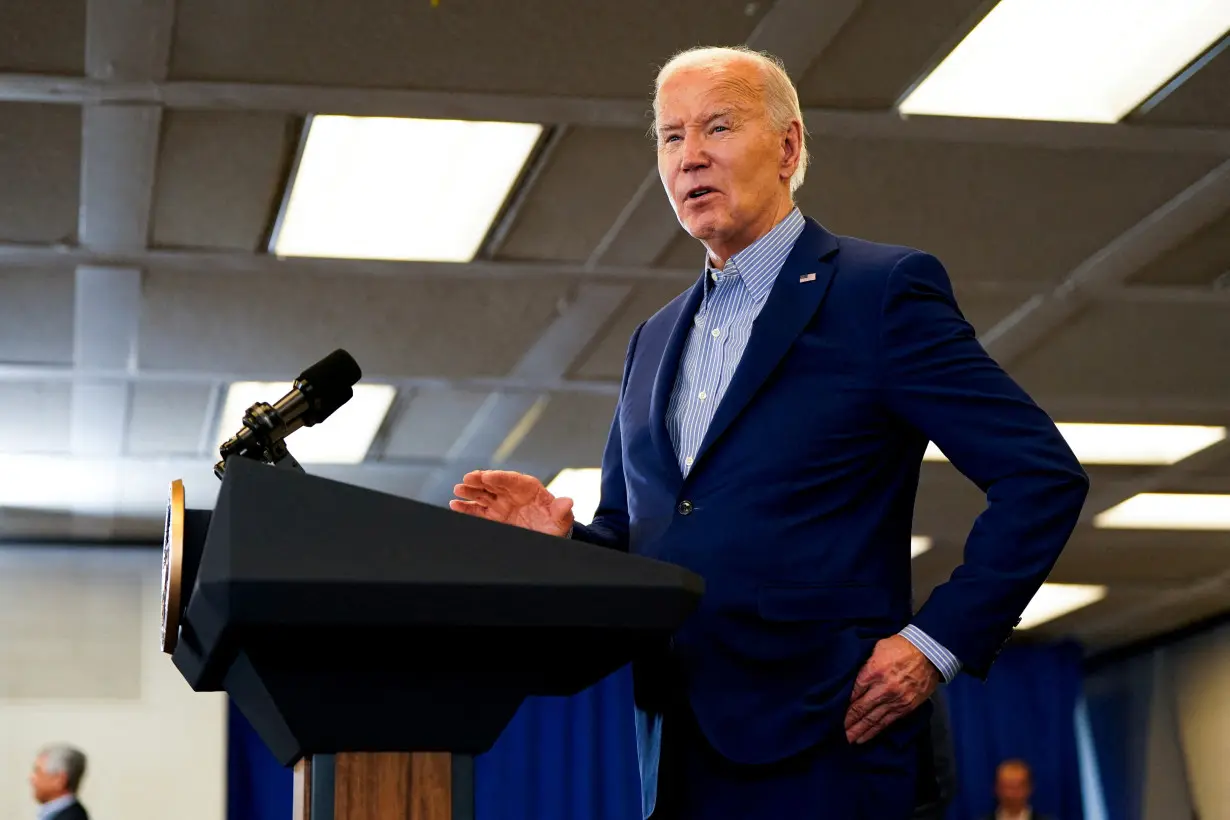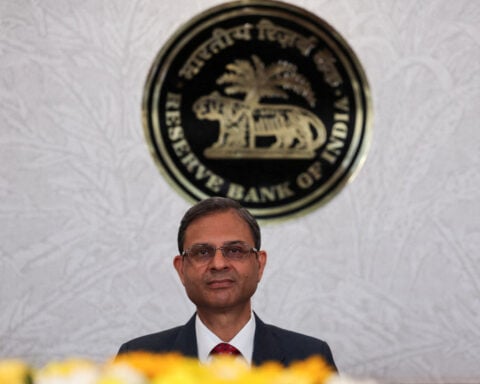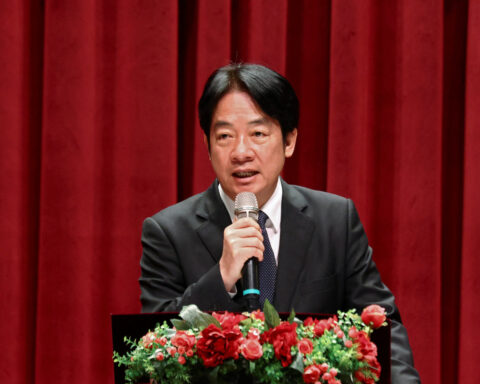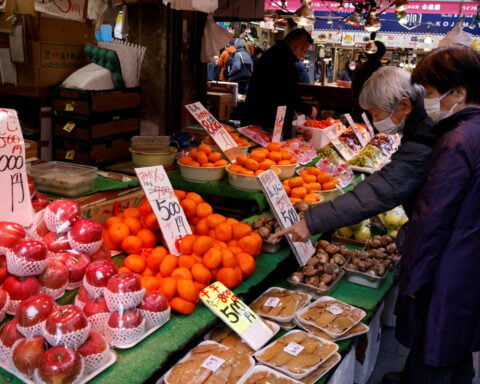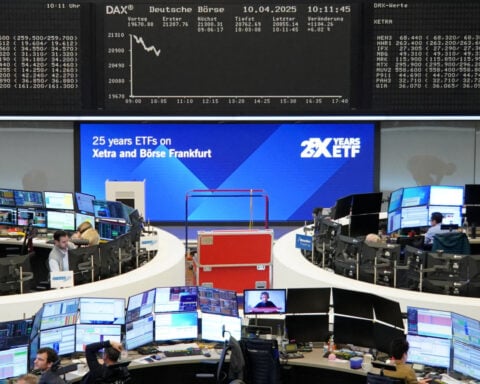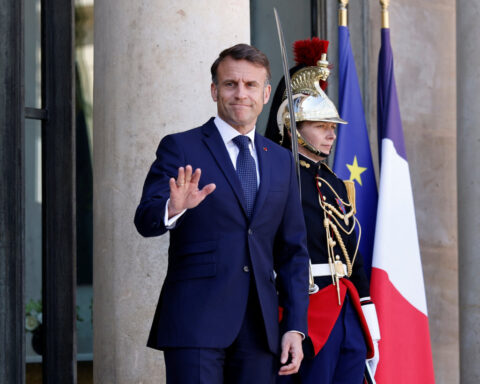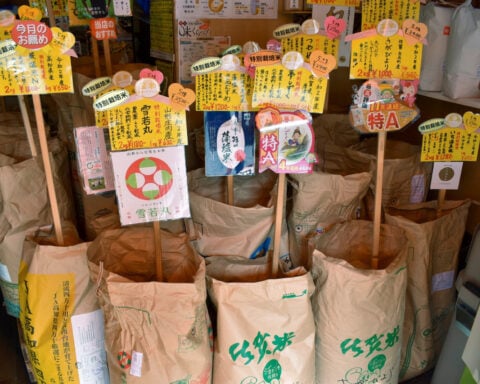By Jarrett Renshaw
(Reuters) - The Biden administration's threat to impose more tariffs on China is the latest election-year signal that frostier relations with China are likely to follow regardless of who wins the U.S. presidency.
U.S. President Joe Biden traveled to the battleground state of Pennsylvania on Wednesday to call for higher tariffs on Chinese steel and aluminum products, and top administration officials have signaled those are unlikely to be his last salvo against China this election season.
The same day, Treasury Secretary Janet Yellen signaled that tariffs on Chinese electric vehicles may be necessary to protect American workers from Beijing's glut of overproduction.
This week, the administration also launched an investigation into what it said were China's attempts to dominate the maritime, logistics and shipbuilding industries. Many experts now think the result of that probe and an ongoing multi-year review of Trump-era trade policies will be even more new tariffs on imports from China.
Liu Pengyu, spokesperson at the Chinese embassy in Washington, said U.S. tariffs embody unilateralism and protectionism.
"Many trading partners of the United States, including China, are strongly dissatisfied with the United States' frequent use of national security, non-market behavior, overcapacity and other reasons to impose restrictions and politicize trade issues," Pengyu said in a statement on Wednesday in response to the proposed steel tariffs.
The Biden administration's decision to ramp up tariffs this week suggests a hawkish trade climate heading into the 2024 election as Biden and his Republican rival, Donald Trump, see a tough-on-China stance as a part of the road to victory, particularly in rust-belt states like Michigan and Pennsylvania.
Trump has proposed 10% across-the-board import tariffs if he were to return to the White House.
He also proposes phasing out Chinese imports of goods such as electronics, steel and pharmaceuticals over four years and wants to prohibit Chinese companies from owning U.S. infrastructure in the energy and tech sectors.
Forty-one percent of Americans named China as the greatest U.S. enemy in a Gallup poll released in March, making it the top perceived U.S. adversary for the fourth straight year, the polling group said.
"China is inevitably getting drawn into what's likely to be a little bit of a chaotic cycle. And I think really, right now, we're just seeing the beginnings of that," said Allen Carlson, a Cornell University professor and expert on U.S.-China relations.
White House officials dismiss the idea that politics is at play, even as Biden trumpeted the proposed steel tariffs in an emotional anti-Trump speech at the United Steelworkers union headquarters in Pennsylvania.
Instead, administration officials say they fear a flood of low-cost exports from China is jeopardizing billions of dollars in tax incentives secured by Biden to anchor industries like solar, wind and electric vehicles in the United States.
China's slow-growing economy is forcing manufacturers to double down on exports to offset weak domestic demand growth, causing China's manufacturing trade surplus to surge to record levels, administration officials say.
Double sided-solar panels, known as bifacials, provide an example of the administration's concerns. The administration granted an tariff exemption to China until 2026 to help promote solar power in the U.S., but now officials are expected to lift the ban and impose tariffs after cheap cells flooded the U.S. market, Reuters reported on Wednesday.
South Korea's Hanwha Qcells asked the administration to lift the ban to protect a pledged $2.5 billion expansion of its U.S. solar manufacturing presence against competition from cheaper Asian-made products.
Biden aides said their administration's policies differed from Trump's in key respects, including being narrowly targeted to specific industries and products - which could lower the odds of strong retaliation by China and other foreign governments.
The steel and aluminum proposal, for instance, would only target $1 billion in goods versus the hundreds of billions implicated by Trump's broader tariffs, a senior administration official said.
Strong U.S. policy against China is one of the rare issues that has strong bipartisan support across the country.
"Everybody's anti-China these days and it's reflected in public opinion," said Bill Reinsch, a senior adviser at the Center for Strategic and International Studies.
(Reporting By Jarrett Renshaw; additional reporting by Jeff Mason; editing by Trevor Hunnicutt and Deepa Babington)

 Trump has begun another trade war. Here's a timeline of how we got here
Trump has begun another trade war. Here's a timeline of how we got here
 Canada's leader laments lost friendship with US in town that sheltered stranded Americans after 9/11
Canada's leader laments lost friendship with US in town that sheltered stranded Americans after 9/11
 Chinese EV giant BYD's fourth-quarter profit leaps 73%
Chinese EV giant BYD's fourth-quarter profit leaps 73%
 You're an American in another land? Prepare to talk about the why and how of Trump 2.0
You're an American in another land? Prepare to talk about the why and how of Trump 2.0
 Chalk talk: Star power, top teams and No. 5 seeds headline the women's March Madness Sweet 16
Chalk talk: Star power, top teams and No. 5 seeds headline the women's March Madness Sweet 16
 Purdue returns to Sweet 16 with 76-62 win over McNeese in March Madness
Purdue returns to Sweet 16 with 76-62 win over McNeese in March Madness
